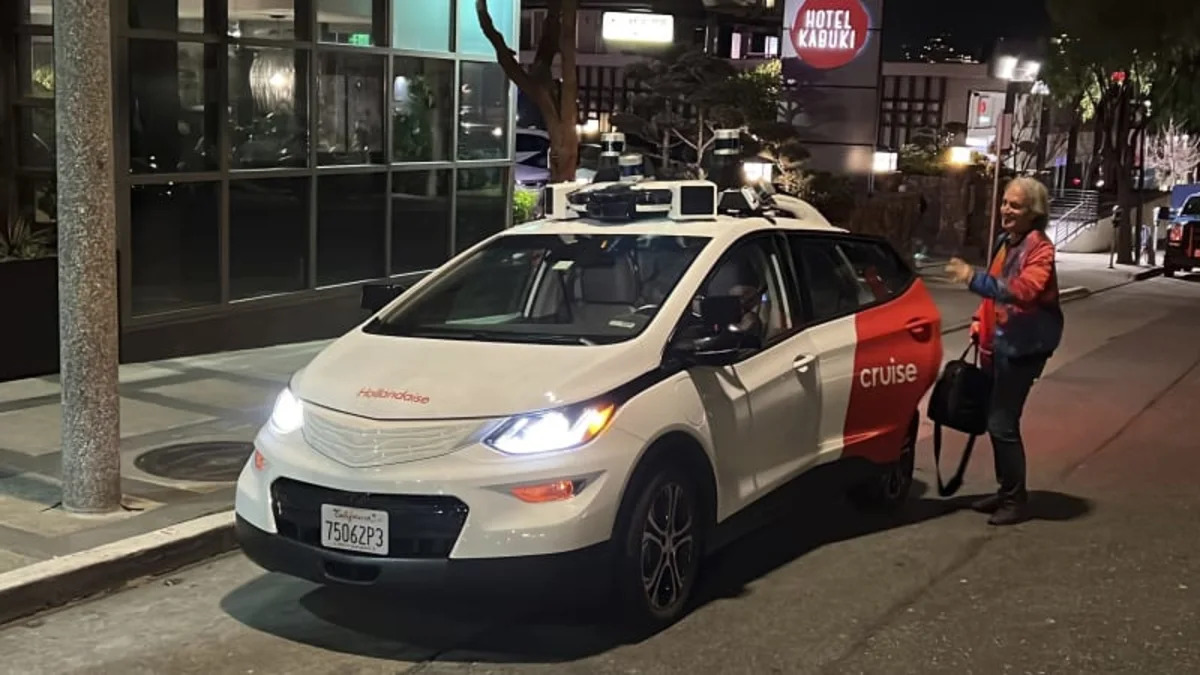Cruise, the autonomous vehicle company majority owned by GM, notified the National Highway Transportation Safety Administration about a recall of its 300 self-driving vehicles after a fender bender in San Francisco. The autonomous Chevrolet Bolt, doing around ten miles per hour, braked too late after an articulated San Francisco Municipal Transit Authority bus — the kind with two solid carriages connected by a pivoting accordion section — pulled in front of the car and came to a stop. In papers filed with the government agency and in a blog post on the Cruise site, Cruise leader Dan Vogt wrote that "the collision was caused by an issue related to prediction of the unique movements of articulated vehicles in rare circumstances" such as the bus in question and tractor trailers.
The accident occurred on March 23. There were no injuries and only moderate damage to the front of the Bolt. Cruise engineers studied the issue and performed their software recall — which meant pushing an OTA update, that's all — on March 25.
The bus was not to blame. We're told the self-driving software accounted for the entire bus as the bus pulled out of a stop ahead of the vehicle. However, since the articulated front section emerged first, when the rear section of the bus then pulled out, the software was processing "the anticipated behavior of the front section of the bus, which was by then obstructed," and "Since the AV had previously seen the front section and recognized that the bus could bend, it predicted that the bus would move as connected sections with the rear section following the predicted path of the front section." The software did issue the command to stop, but it did so too late, hence the bumper car moment.
The self-driving Cruise vehicles only operate in certain areas of San Francisco between 10 p.m. and 5 a.m., but it's certain they've had countless interactions near and around articulated buses. Vogt wrote, "Fender benders like this rarely happen to our AVs, but this incident was unique." Autonomous industry observers call this kind of incident an "edge case," the rare traffic event incident a human would know how to handle but that is difficult or impossible to program for until it happens. This is how the bugs get found.
San Francisco authorities don't like the technique, though. Cruise and competitor Waymo want to expand, the San Francisco County Transportation Authority petitioned the California Public Utilities Commission (CPUC) in January to decline any expansion after having to deal with "92 unique incidents reported to the City between May 29, and December 31, 2022."
Vogt wrote in his post on the Cruise site, "We will undoubtedly continue to discover ways in which we can improve. ... These continuous improvements are likely to make voluntary recalls commonplace. We believe this is one of the great benefits of autonomous vehicles compared to human drivers; our entire fleet of AVs is able to rapidly improve, and we are able to carefully monitor that progress over time."


Sign in to post
Please sign in to leave a comment.
Continue